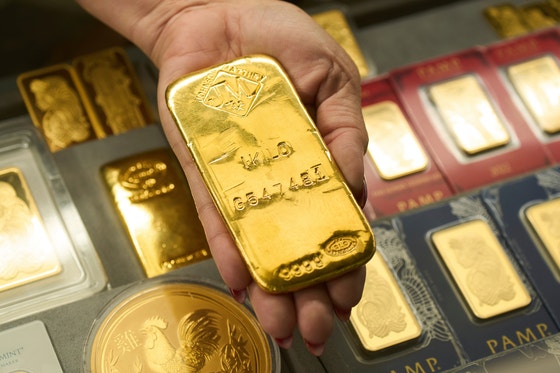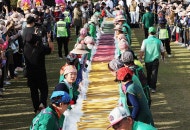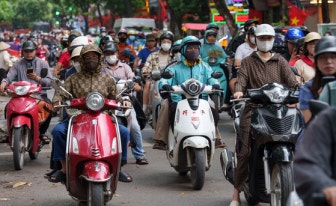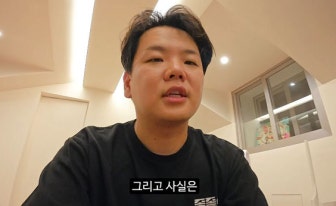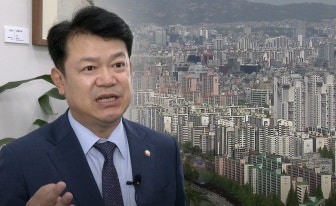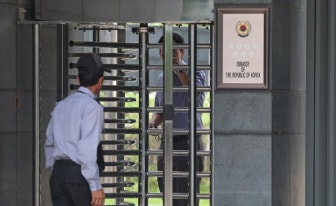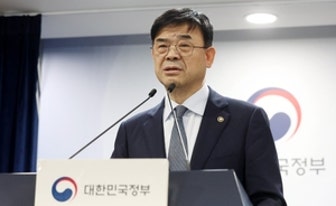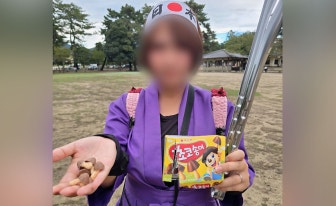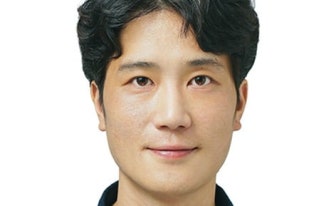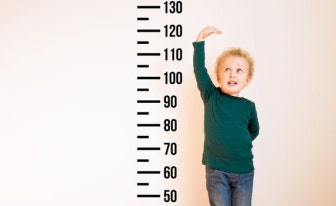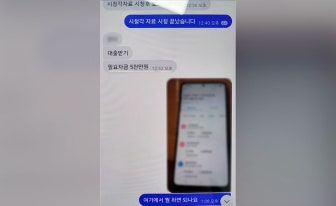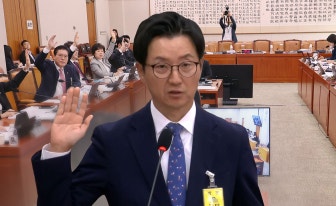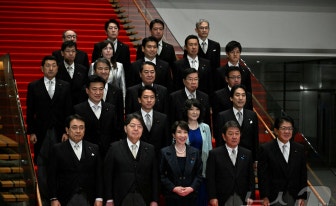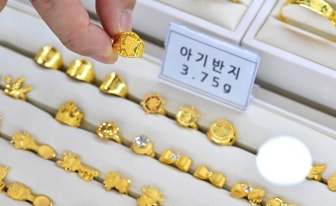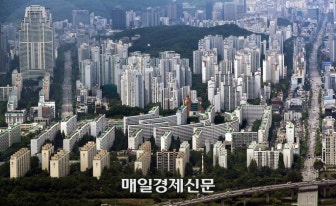A 37-year-old office worker surnamed Kim recently visited a large supermarket near his office in Yongsan, central Seoul, to check out a newly installed vending machine selling gold products.
Having heard about the machine's launch, he stopped by in hopes of purchasing a small gold bar — only to find a sign indicating that all the items were sold out.
He said, “It’s getting harder to trade gold bars online, so I was looking for a way to buy physical gold in person. I came after seeing a post online about a gold vending machine.”
According to Korea Exchange (KRX) on Thursday, the spot price of gold (1 kilogram) closed at 218,020 won ($153) per gram.
Although it dropped 3.96 percent from the previous day, the price has remained on an upward trend throughout the month, having surpassed the 200,000 won mark on Monday, setting consecutive record highs.
This represents a nearly 70 percent increase from early this year, when gold was around 128,000 won per gram.
As demand for gold investment skyrockets, it's becoming increasingly difficult to obtain physical products.
Gold distributor Korea Gold Exchange suspended sales from 3 p.m. on Tuesday, citing issues with the supply of raw materials and a surge in orders. On that day, its website showed “sold out” labels on all gold bars and jewelry.
In early October, Korea Minting and Security Printing Corporation also halted supply of all gold bars until Jan. 1 of next year. Korea Gold Exchange is also reportedly reviewing whether to suspend supply of gold bars to banks.
This has drawn attention to alternative gold investment routes.
According to GS Retail, which operates gold vending machines in stores, sales of pure gold and gold products from January to September this year reached 2.4 billion won, already surpassing last year’s total of 1.8 billion won.
Large sums of money are also flowing steadily into gold banking, like gold savings accounts. The combined gold banking balances at KB Kookmin, Shinhan and Woori Banks exceeded 1.5 trillion won this month, continuing a steep climb after first surpassing 1 trillion won in March.
Some investors are taking advantage of the so-called “gold premium” — the higher domestic gold price compared to international markets.
For instance, they sell domestic gold exchange-traded funds (ETFs) for profit, then use that to buy international gold ETFs listed in Korea, profiting from the price gap.
As domestic gold supply lags while demand surges, these investors aim to profit from the disparity between global and local prices.
According to KRX and financial data platform Investing.com, as of Thursday, domestic gold prices were about 18.34 percent higher than international prices.
This gap has widened significantly, compared to just 1.51 percent on Sept. 15 — an almost 16-fold increase.
With increasing uncertainty due to potential U.S. interest rate cuts and U.S.–China tensions, gold prices are expected to continue rising for the time being.
However, experts warn that domestic gold prices are also highly volatile, and investors should exercise caution.
In fact, on this day, the spot price of 1 gram of 1-kilogram gold on KRX dropped more than 7 percent within 30 minutes of the market opening, falling to 210,210 won before rebounding — showing sharp fluctuations.
A KRX official explained, “Today’s gold trading volume was higher than usual, but many sellers appeared to be realizing profits out of concern that prices could fall due to the growing price gap between domestic and international markets.”
Previously, the KRX issued two cautionary notices — one last month and one this month — urging investors to be cautious about gold investment.
“In Korea, gold supply is particularly limited, and with ongoing economic uncertainty, prices are rising due to the perception of gold as a safe asset,” said Kim Sang-bong, an economics professor at Hansung University.
“However, prices have already risen significantly compared to other commodities, and the gap with international prices needs to be corrected. Excessive investment at this stage is inadvisable,” Kim added.
This article was originally written in Korean and translated by a bilingual reporter with the help of generative AI tools. It was then edited by a native English-speaking editor. All AI-assisted translations are reviewed and refined by our newsroom.
